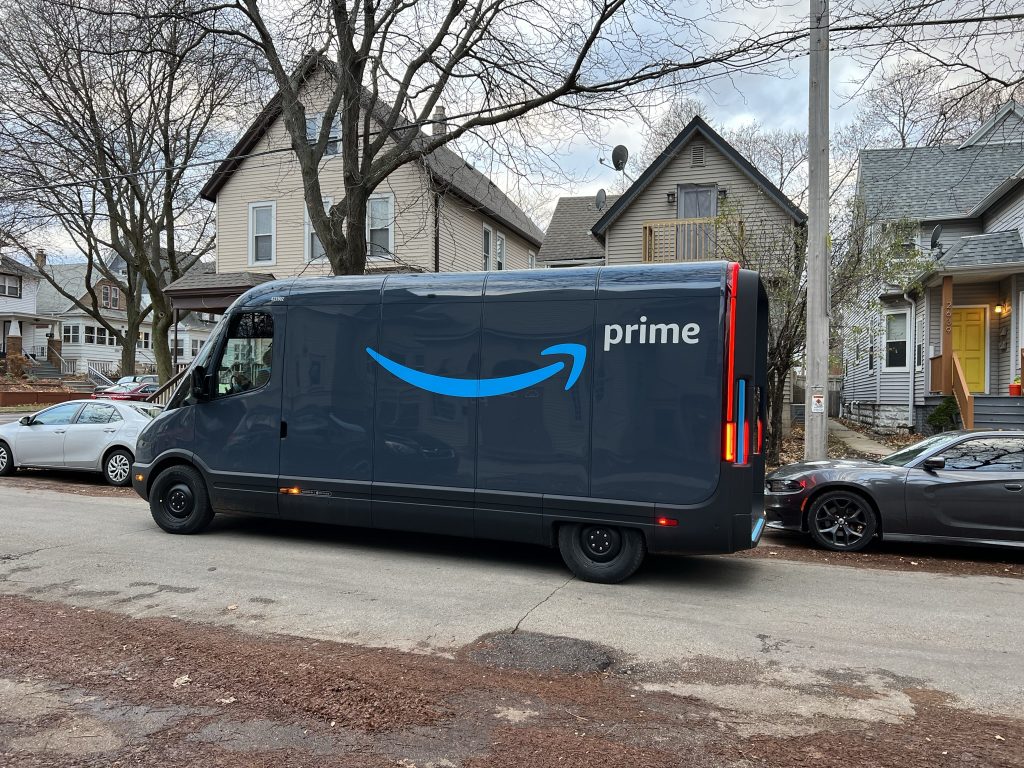Is Zero Emissions Delivery Possible?
All the city news you can use.
Every day at The Overhead Wire we sort through over 1,500 news items about cities and share the best ones with our email list. At the end of the week, we take some of the most popular stories and share them with Urban Milwaukee readers. They are national (or international) links, sometimes entertaining and sometimes absurd, but hopefully useful.
An experiment in Universal Basic Mobility: A pilot program in Los Angeles funded by the California Air Resources Board gives South LA residents $150 per month to spend on transportation. The money will be disbursed through a debit card “mobility wallet” which can be spent on almost any conveyance but not on owning a car. Any unspent funds can be rolled over into the next month and residents have used it in different ways including saving up for an e-bike. (Maylin Tu | NextCity)
Housing vulnerable to insurance shocks: The First Street Foundation has created maps that show risks of insurance corrections from fire, wind, and floods around the county. These risks exist whether you live near a dangerous area or not as evidenced by the fact that State Farm will be raising rates 20% on all of their policies in California. And the increased cost for home repairs hits hard because the cost to replace homes damaged or lost has become more expensive leading to potentially higher rates everywhere. (Lance Lambert | Fast Company)
Root of the housing crisis: There are a lot of scapegoats for the current housing crisis including federal programs, institutional investors, developers building high end homes, and a lack of zoning changes. A new report from the Urban Institute suggests that even though better dealing with these four issues can be part of the solution, the main problem is that there’s not enough homes for all the new households that are being formed. (Molly Bolan | Route Fifty)
Preventing America’s older buildings from collapse: Four recent major building collapses in the United States were preceded with warnings in the form of deteriorating conditions witnessed by residents and documents submitted to city departments clearly showing problems. In order to make sure catastrophic building collapses don’t continue, Drexel University professor Abieyuwa Aghayere argues cities need to up inspections and residents need to speak up when they see potential signs of trouble. (Abieyuwa Aghayere | The Conversation)
Fixing delivery’s pollution problem: Nine cities will take part in a program called the zero emissions delivery challenge in order to find solutions for increasing pollution in disadvantaged communities from delivery vehicles. Cities will identify potential solutions that might work for them and the ones that work will get venture funding from the Los Angeles Cleantech Incubator to scale up. Emissions from local delivery traffic is expected to rise 32% without changes. (Ysabelle Kempe | Smart Cities Dive)
Quote of the Week
“‘Two-tier mobility’ is a meme for thinking of the relationship of mobility and urban design. Influential memes like transit-oriented development, missing middle housing, complete streets, safe routes to school, and mixed-use development reside in the mind as placeholders for urban planning solutions orchestrating many coordinated changes—memes that aid constructive and efficient communication. Over 100 years ago, travel was multimodal: walking, bicycling, streetcars, trains, horses, and ferries. It’s time to accelerate the change to a new multimodal transportation future that allows people to choose the low-carbon emitting vehicles appropriate to their local and distance mobility needs. Two-tier mobility as a meme can help us think and act anew.”
Steve Price in CNU Public Square discussing how to rethink mobility away from an auto first paradigm.
This week on the podcast we’re joined by Dr. Shima Hamidi, Assistant Professor at Johns Hopkins University to talk about the report: A National Investigation of the Impacts of Lane Width on Traffic Safety.
Want more links to read? Visit The Overhead Wire and signup.
If you think stories like this are important, become a member of Urban Milwaukee and help support real, independent journalism. Plus you get some cool added benefits.
Urban Reads
-
Congestion Pricing Cuts Air Pollution in New York City
 Dec 14th, 2025 by Jeff Wood
Dec 14th, 2025 by Jeff Wood
-
We Think We Love to Drive. But Do We Really?
 Dec 7th, 2025 by Jeff Wood
Dec 7th, 2025 by Jeff Wood
-
Can Scott Wiener Tackle America’s Housing Crisis?
 Nov 23rd, 2025 by Jeff Wood
Nov 23rd, 2025 by Jeff Wood





















